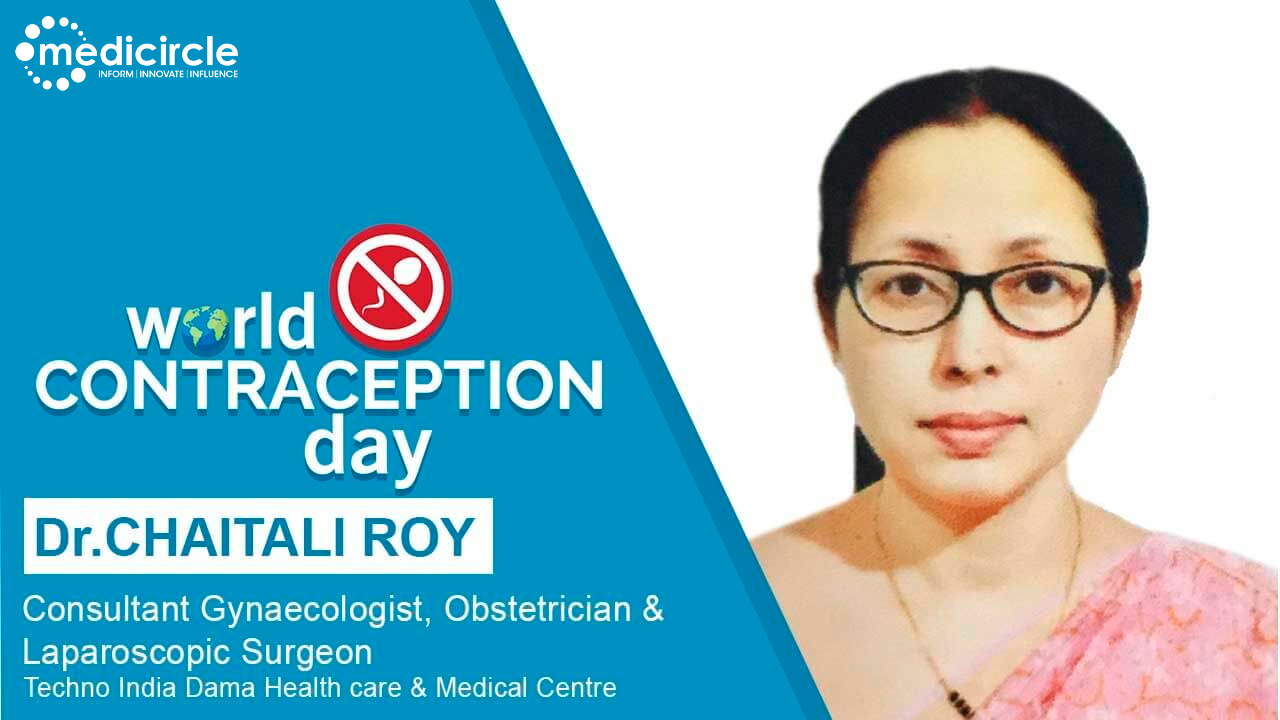Contraception is very important, for oneself, for the life partner and for the environment, for the mental and physical health of all the family members and for the economic future of the whole family. Mission Parivar Vikas, a central family planning initiative, has also been launched by the Ministry. The key strategic focus of this initiative is on improving access to contraceptives through delivering assured services, ensuring commodity security and accelerating access to high-quality family planning services. The main objective of the Mission Parivar Vikas family planning initiative is to bring down the Total Fertility Rate to 2.1 by the year 2025. We at Medicircle are conducting the World Contraception Day Awareness Series to impart basic knowledge and encourage people to know about contraception for effective and successful family planning.
Dr Chaitali Roy is working as a consultant gynaecologist and obstetrician, laparoscopic surgeon. She works as a consultant at Techno India Dama Health care and Medical Centre. Dr Chaitali Roy has helped numerous patients in her 21 years of experience as a Gynaecologist.
Contraception and STDs
Dr Roy begins, “This is a very important topic. We should all think about the prevention of sexually transmitted disorders. As we are Westernising, we are receiving many adolescent patients. Their age group doesn’t know what safe sex is. They are therefore more at risk from STDs. Oral contraceptive pills, injectables and other methods that have high efficacy. But their results are poor when it comes to STDs. When it comes to STDs only one method is reliable, that is the barrier method (condom). Again the contraceptive efficacy of condoms is not much. My suggestion is to combine two methods, oral contraceptive pills plus barrier method. This combined method is effective against STDs.”
Emergency pill
She explains, “Emergency contraceptive is used when one is preventing pregnancy or when one has missed their pills but have been exposed to sexual intercourse. An emergency pill is not the same as an abortifacient drug. An abortifacient is used to terminate your pregnancy. An emergency pill should not be confused with a regular contraceptive pill. The latter is an umbrella term for contraceptive care and provided regular protection. An emergency pill is used when the regular contraceptive pill is missed and you have to use one as an emergency. Emergency pills are not as efficient as regular contraceptive pills. And they should not be used regularly.”
Side effects
Dr Roy says, “Gaining weight due to contraception pill is a myth. There are many scientific trials that have concluded that there is no relation between contraceptive pills and weight gain. On the contrary, they reduce body weight. If you notice weight gain the there must be some other factor that results in your weight gain.”
Pregnancy after using contraception
She answers, “ It is seen in many women that after stopping their oral contraception pills, they get their pregnancy within four to six months. Research suggests that 84% of women can achieve pregnancy within 10 to 12 months. Be reassured that if you have been taking the pill for long then it doesn’t make you infertile. As such you must plan your life and plan your pregnancy accordingly.”
(Edited by Priyal Shah)

 Dr Chaitali Roy explains the virtues and vices of different contraceptive methods. She shatters myths on using oral contraceptive pills and becoming infertile or gaining weight.
Dr Chaitali Roy explains the virtues and vices of different contraceptive methods. She shatters myths on using oral contraceptive pills and becoming infertile or gaining weight.








.jpeg)


.jpg)







.jpeg)

.jpg)




.jpg)




.png)


